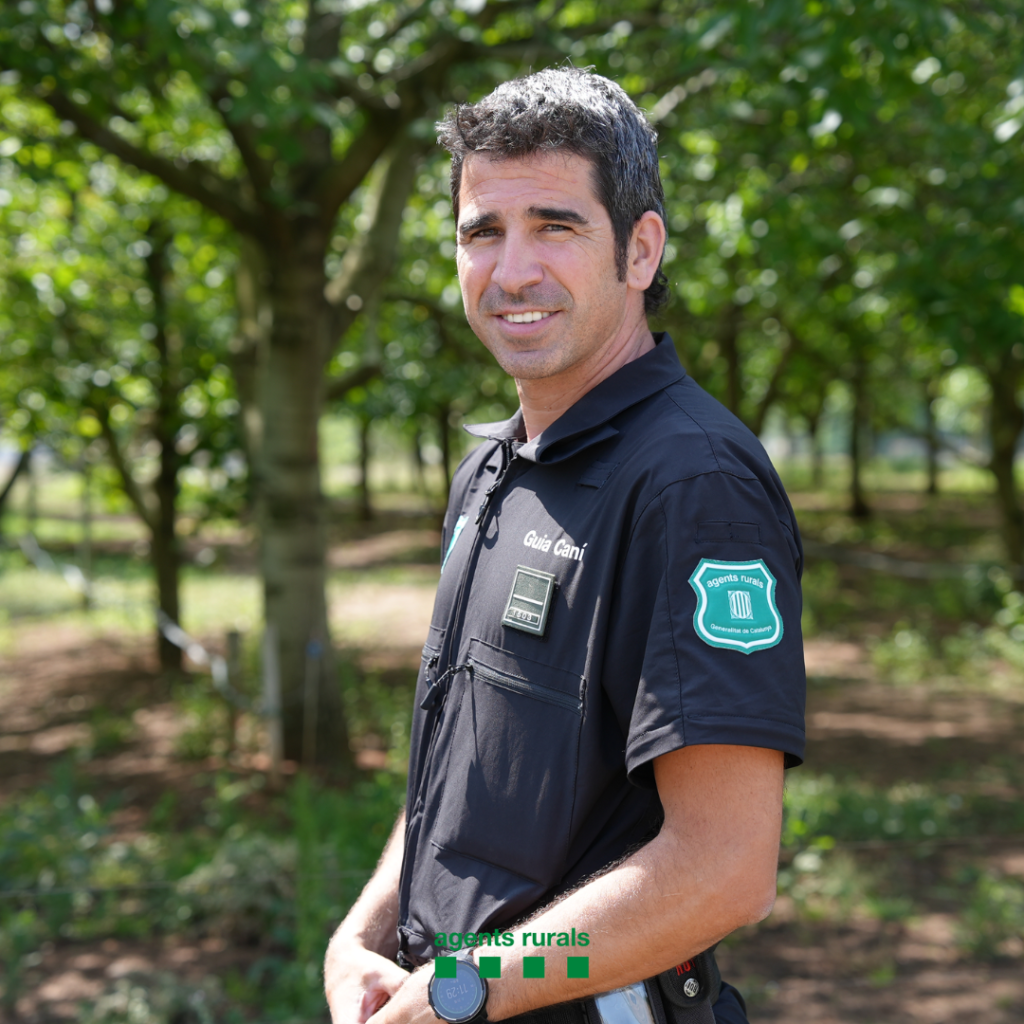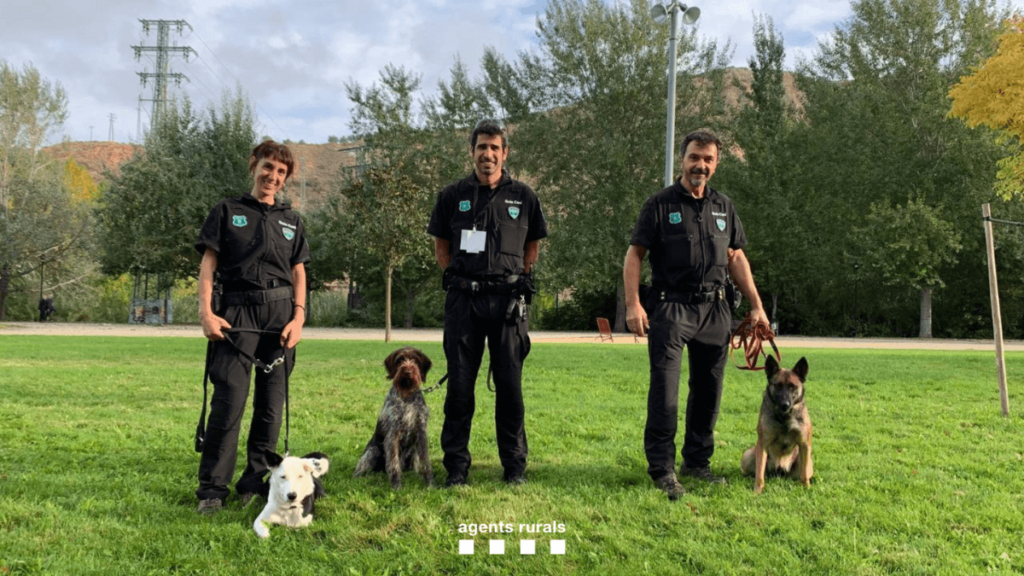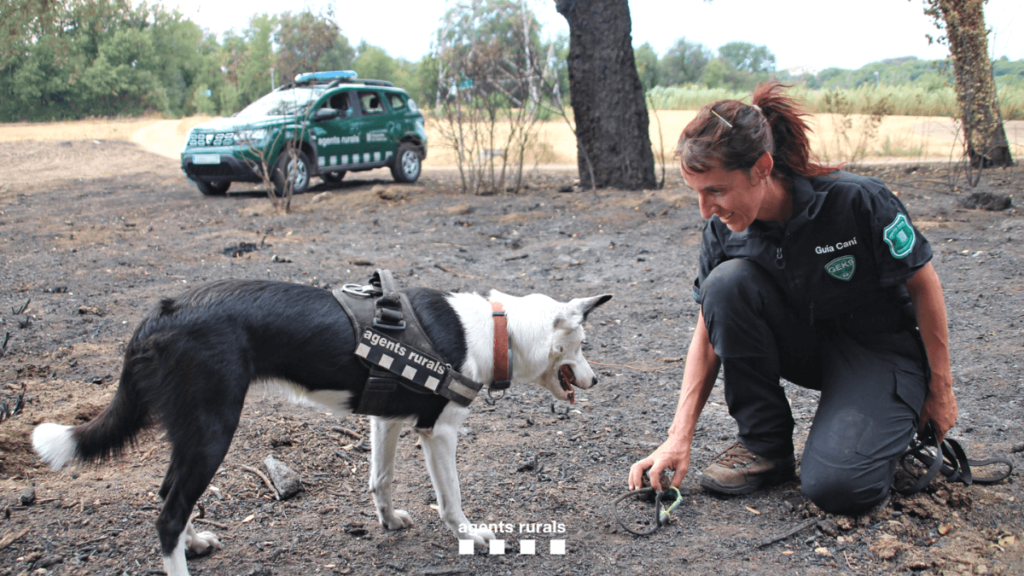Until 6 June, you as a ranger working with dogs still have the opportunity to register for our K9 Training: Dogs for Conservation. Not sure if the course is right for you? Read our interview with Lluís Pallarès. He will show you in our training how a K9 ranger unit works with detection dogs for conservation.
Here he tells you for whom the course is suitable, which learnings you can expect, about the background of his K9 unit at Agents Rurals, Generalitat de Catalunya, and his passion for working with dogs.

“Control and surveillance of hunting and investigation of forest fires have always fascinated me. Carrying out my work with four-legged friends in these topics is one of the most rewarding experiences of my professional career.”
Lluís Pallarès, trainer for our K9 training and Technical Coordinator at Grup Especial Caní (GEK9)
Who is the course for?
The course is aimed at rangers who work with detection dogs in the natural environment. It is also aimed at those managers who wish to implement a Canine Unit model within their respective organisations.
What K9 handling skills will trainees take home?
The training session will not deal specifically with the handling and training of detection dogs, although some very basic aspects of training will be addressed in order to understand the context of the contents of the session. Attendees will learn first-hand how the Grup Especial Caní dels Agents Rurals is organised, how it works, its areas of specialisation, and the road it has travelled to reach the point it is at today.
What kind of uses of detection dogs will be covered?
At the moment the Grup Especial Caní del Cos d’Agents Rurals is formed by seven guides and nine dogs, working in the following areas of specialisation:
- Bear and wolf tracking
- Wildlife carcasses
- Poisons
- Fire accelerants
During the course, attendees will receive information on the work carried out in each and every one of the specialisations, although we will focus in particular on the detection of poison and wildlife carcasses.
What are the other objectives of the course?
We are aware that there are many colleagues in other regions of Europe who find it difficult to work with their dogs. This is a situation that we have also gone through, and we want to make known how the Cos d’Agents Rurals has reversed it, implementing a canine unit that is more than necessary in our organisation. We want to offer an example of a model to follow, so that the canine units in the different Ranger organisations start to become a reality.





In addition, the Natural Park of Montserrat is an incomparable setting for carrying out this course. This natural site offers a variety of possibilities that we will make the most of with the attendees, including a guided tour inside the park, to learn about the management model and use of a space that, being 50 km from Barcelona, receives an average of 2.5 million visitors each year.
In field exercises, will the trainees train with the dogs or will they observe?
We offer a field practice, where attendees can observe a demonstration of our dogs working in 4 different scenarios, reproducing the entire procedure, from the initial work with the dog, to the collection and sealing of the detected samples. Any doubts that may be raised in this regard will be resolved at this same place.
Can you bring your own dog?
It is not expected that attendees will carry out the course with their dog, as this is not the objective of the course.
What does the K9 unit do? And how many dogs and Rural Agents are in it?
As mentioned above, at the moment the Grup Especial Caní del Cos d’Agents Rurals is formed by seven guides and nine dogs, working in the following areas of specialisation of bears and wolfs tracking, wildlife carcasses, poisons and fire accelerants.
We are currently implementing a wildlife search unit, which will be integrated into the Special Wildlife Capture Group. They are expected to be able to provide support for wildlife capture operations using tele-anaesthesia, among other things.

Tell us a bit about your career and how long you have been the head of the unit.
I joined the Cos d’Agents Rurals in 2007, and after several years at the basic assistant level, I passed the tests to enter the Grup Especial de Verins i Antifurtivisme (GEVA – Special Group for Poison and Anti Poaching) and later the Grup Especial Caní (GEK9 – Special K9 Group), where I work as Technical Coordinator, and I have been assigned a dog that is a specialist in detecting fire accelerants. At the moment I am in a screening process to qualify for the position of Deputy Inspector, which I combine with the degree in Criminology that I am studying.
The control and surveillance of hunting and the investigation of forest fires have always been the two subjects that have fascinated me the most in this job, and being able to carry them out with the training and specialisation received is very rewarding. I am also someone who has always been surrounded by dogs. In my house we have had dogs since I was a child, and having the opportunity to carry out my work with four-legged friends is one of the most rewarding experiences of my professional career.
This content is sponsored by


